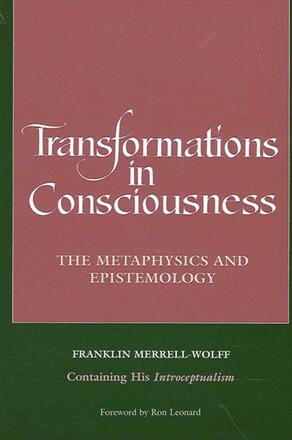
Transformations in Consciousness
The Metaphysics and Epistemology. Franklin Merrell-Wolff Containing His Introceptualism
Alternative formats available from:
This book presents a philosophy that includes the enlightenment experience--a philosophy grounded on the authority of direct realization resulting from transformation in consciousness.
Description
This book presents a philosophy that includes the enlightenment experience--that embraces the wider ranges opened by the door of realization--while not excluding the contents of the more common experience. A realization in consciousness that finds no place or adequate recognition in philosophical systems proves the inadequacy of those systems. The author first briefly surveys the principal schools of modern Western philosophy in order to show how they fall short. He then presents his philosophy grounded on the authority of direct realization resulting from a transformation in consciousness.
After graduate work in philosophy at Harvard, Franklin Merrell-Wolff accepted a position as professor of mathematics at Stanford. A few months later, he abandoned a promising academic career in order to facilitate his quest for a third way of knowing--a way apart from sense perception and conceptual cognition. "I found myself in sight of the limits to which our present egoistic consciousness has reached, and also had found adumbrations of another kind of consciousness where alone, it seemed, solution of the subject-object consciousness could be found." He was the author of Franklin Merrell-Wolff's Experience and Philosophy: A Personal Record of Transformation and a Discussion of Transcendental Consciousness: Containing His Philosophy of Consciousness Without an Object and His Pathways Through to Space, also published by SUNY Press.